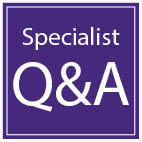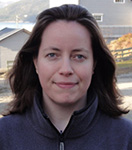 Our editorial industry is made up of people carrying out a huge range of tasks across many different sectors. Although we are bound by common aims – to make text consistent, accurate and clear – our chosen areas of work can differ in fascinating ways.
Our editorial industry is made up of people carrying out a huge range of tasks across many different sectors. Although we are bound by common aims – to make text consistent, accurate and clear – our chosen areas of work can differ in fascinating ways.
Cathryn Primrose-Mathisen is an onscreen copy-editor. She has answered some questions on her main specialisms: oceanography and medicine.
- Briefly, what’s your work background?
Following university, I worked for Fugro GEOS/OCEANOR for 14 years. I was involved in metocean measurement and real-time monitoring projects, holding roles such as project/sales manager in Trondheim, operations manager in Houston, and senior oceanographer in Singapore. I also completed many fieldwork visits, installing and servicing instrumentation on moorings and offshore platforms, as well as reporting the results and presenting them at conferences. I worked with very different clients, such as oil and gas companies, governmental organisations and universities. In terms of medicine, when I was younger I used to work in the summer holidays at the health centre where my mother worked as a GP.
I have been freelance copy-editing/proofreading for about six years. I specialise in science, technology, business and medicine. I have copy-edited numerous scientific articles both pre- and post-submission to journals, and I have copy-edited books about, for example, climate change, marine ecology, earthquake engineering, international relations and clinical diabetes. Over the past five years I have worked with a local doctor providing English language review of his PhD thesis as well as articles that have been published in BMC Musculoskeletal Disorders and the BMJ.
- How long have you specialised in this particular kind of editorial work, and how did you get started?
I have specialised in these areas for most of my freelance career. Initially, I took The Publishing Training Centre’s ‘Basic proofreading by distance learning’ course and joined the Society for Editors and Proofreaders (SfEP). I marketed myself as a proofreader, emphasising my academic qualifications (MSc Oceanography, BSc (Hons) Geography) and the subject areas I studied at university (climate change, palaeoceanography, geopolitics, culture etc.). It soon became clear that I was a more natural copy-editor and that I had a broad range of both academic and commercial experience. A couple of my proofreading clients asked whether I would like to do some onscreen copy-editing work and it grew from there. I studied Barbara Horn’s Copy-Editing and decided to supplement my knowledge of MS Word by taking the SfEP’s ‘Onscreen editing 1’ course. I plan to take the level 2 course when I can.
- What specific knowledge, experience or qualifications do you need?
A sufficient academic grounding enables you to know whether the flow of a text is correct for the fields in which you specialise, helps you to communicate with the authors, and helps you to spot obvious mistakes. My master’s degree has helped me to obtain projects, but it is not a prerequisite for all clients.
One of my best commercial clients contacted me specifically because I had spent a great deal of time working offshore on oil rigs. They knew that I was familiar with the stringent health, safety and environment procedures found there. Similarly, one of the PhD theses that I copy-edited last year was about project management, and the client contacted me because of my previous commercial experience.
A close family member has diabetes type 1 and uses an insulin pump. The system is similar in many ways to the real-time metocean monitoring systems that I installed for Fugro, and we troubleshoot it in the same way.
- How do you go about finding work in this area?
I started by approaching some of the larger academic publishers and replying to job announcements sent via the SfEP. Over the years I have built up my experience and have maintained a good relationship with my clients, leading to repeat work.
I upgraded my SfEP membership so that I could obtain a directory entry and have received some good leads from different types of clients in this way. I have also experimented with other directories, finding some more suitable than others.
My aim is to continue to expand my commercial base. I have attended the SfEP’s ‘Getting work with non-publishers’ course, which has helped me to clarify my goals. I will soon be working with a local business mentor to help me build my business network in the cities closest to where I live, and I have also joined my nearest chamber of commerce (Norwegian equivalent of). Last year I attended the Aqua Nor conference in Trondheim, Norway, and this year I will be attending the Oceanology conference in London. I am fortunate that our local business development organisation Bindal Utvikling AS is providing some financial support.
- What do you most enjoy about the work?
I enjoy being able to make use of my university and work experience to help clients from around the world. I particularly enjoy copy-editing articles about data collection during fieldwork and the subsequent presentation and analysis of results.
- What are the particular challenges?
Cross-referencing many pages of tag numbers proved ‘interesting’, but I found that the key was to develop and apply a clear and logical sequence of actions.
- What’s the worst job you’ve had – and/or the best?
The worst job I had was really two and this was very early on in my freelance career. I naively accepted two large proofreads that overlapped and I did not anticipate delays with the first one. This led to very long days and nights.
- What tips would you give to someone wanting to work in this field?
Do not overestimate your potential earnings. Also remember that you may not be able to focus properly for more than about four to five hours a day on a long-term basis.
- What is the pay like – and are there any other perks?
Pay from my commercial clients is generally higher than from my publishing clients. I aim for balance in my work and family life, and I enjoy going for a walk in the hills at lunchtime.
- What other opportunities do you think editorial work in this area might lead to?
Over the next few years I will increase the marketing of my rewriting and website copy-editing skills. I shall also continue to reach out towards the aquaculture industry, where my skills and experience can also be used.
I have recently completed my own print-on-demand book of landscape photographs and have used design software to compile a recipe booklet for fundraising for a school class.
 Cathryn Primrose-Mathisen is an Advanced Professional Member of the SfEP, specialising in science, technology, business and medicine for everyone from individuals to multinationals. Following a successful commercial oceanographic career around the world she now lives in Norway and helps others to acquire more customers, sell more products and services and/or present clear safety and technical information or scientific results. She walks wherever and whenever possible. Find out more at: www.cathrynprimrose.com, www.sfep.org.uk/directory/cathryn-primrose-mathisen and www.linkedin.com/in/cathrynprimrose
Cathryn Primrose-Mathisen is an Advanced Professional Member of the SfEP, specialising in science, technology, business and medicine for everyone from individuals to multinationals. Following a successful commercial oceanographic career around the world she now lives in Norway and helps others to acquire more customers, sell more products and services and/or present clear safety and technical information or scientific results. She walks wherever and whenever possible. Find out more at: www.cathrynprimrose.com, www.sfep.org.uk/directory/cathryn-primrose-mathisen and www.linkedin.com/in/cathrynprimrose
Proofread by SfEP Professional Member Christina Harkness
The views expressed here do not necessarily reflect those of the SfEP
